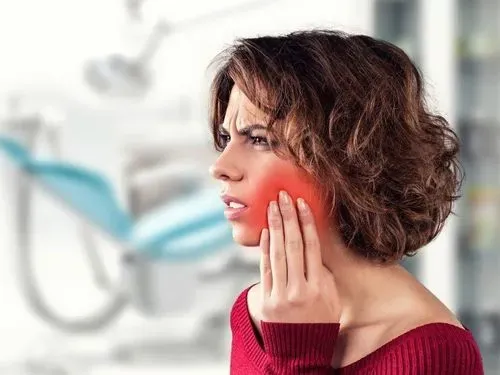COMMON REASONS YOU COULD HAVE PAIN AFTER DENTAL WORK
When you go to the dentist for dental work, such as getting a cavity filled or a crown replaced, you might be discouraged when your mouth still hurts for days after the procedure.
Mouth tenderness is common after dental procedures because your mouth has soft tissues that can become agitated as a result of drilling and receiving needles for anesthesia. However, this discomfort should fade within a couple of days, and it definitely should not get worse.
If you have pain in your mouth that persists after your dental appointment, contact your dentist to learn if one of the following reasons might be the culprit.
1. Improper Bite Alignment
When you get a cavity filled, your dentist removes the decayed area of the tooth and replaces it with a composite material that matches the color of your original tooth. Your dentist does their best to get the filling to match the shape of your original tooth.
However, sometimes this shaping is not perfect, and the filling might sit too high, causing pain whenever you bite down because the bite force of your jaw is concentrated on that tiny filling, instead of distributed through a matched set of teeth. The force irritates the nerve below the tooth, and you will feel pain.
Fortunately, this type of post-procedure pain is easy to fix. Simply call your dentist to have your bite checked. Filing down a filling that is too large takes very little time, and you won't need any more anesthesia to do it.
2. Jaw Tenderness
Jaw tenderness is another common complaint for dental patients. Sometimes, especially if the procedure you need takes a long time, your jaw muscles and joints can get tired of being open so wide for so long. You can experience tenderness that radiates from the back of your mouth, making it feel like your teeth are hurting, but the pain is really joint and muscle soreness.
You can help to treat jaw tenderness by focusing on relaxing your mouth when resting. Try not to clench your teeth at all. You can take medications like ibuprofen for muscle pain and to reduce overall inflammation. You might even gently massage the jaw area through your cheek to help reduce the tension there.
If you still do not have relief, talk to your dentist about temporomandibular joint dysfunction (TMJ).
TMJ occurs when the pain in the jaw joint area becomes more persistent, and dental procedures can sometimes worsen this pain. You might experience popping, the inability to fulling open your mouth, or pain when chewing. A mouth guard or relaxants might help to keep the pain in check.
3. Large-Scale Treatment
Some dental procedures are more invasive than others. A small cavity, for example, can be filled with little incident, and you can be on your way. A larger cavity, on the other hand, might go deeper into the tooth, much closer to the nerve.
While large cavities still can be repaired without the need for root canal surgery, the force of the procedure still aggravates the nerve, and you might still experience residual pain and sensitivity for days or even weeks after the tooth is repaired.
To reduce pain, use over-the-counter pain medications, and be gentle with your tooth as it heals. Avoid extremes in temperature and use gentle pressure when brushing and flossing.
5. Poor Post-Procedure Care
Finally, pain after dental treatments can come from not following post-operative care instructions from your dentist. For example, if you have a tooth removed, you need to be careful to preserve the cleanliness of the wound and avoid opening it back up after it has clotted.
This might mean avoiding chewing and solid foods and not using a straw to drink liquids. When a person avoids this advice, they increase the risk of infection or wound contamination, and they can experience great pain as their mouth doesn't heal the way it should.
For more information, contact us at Desert Dental.









